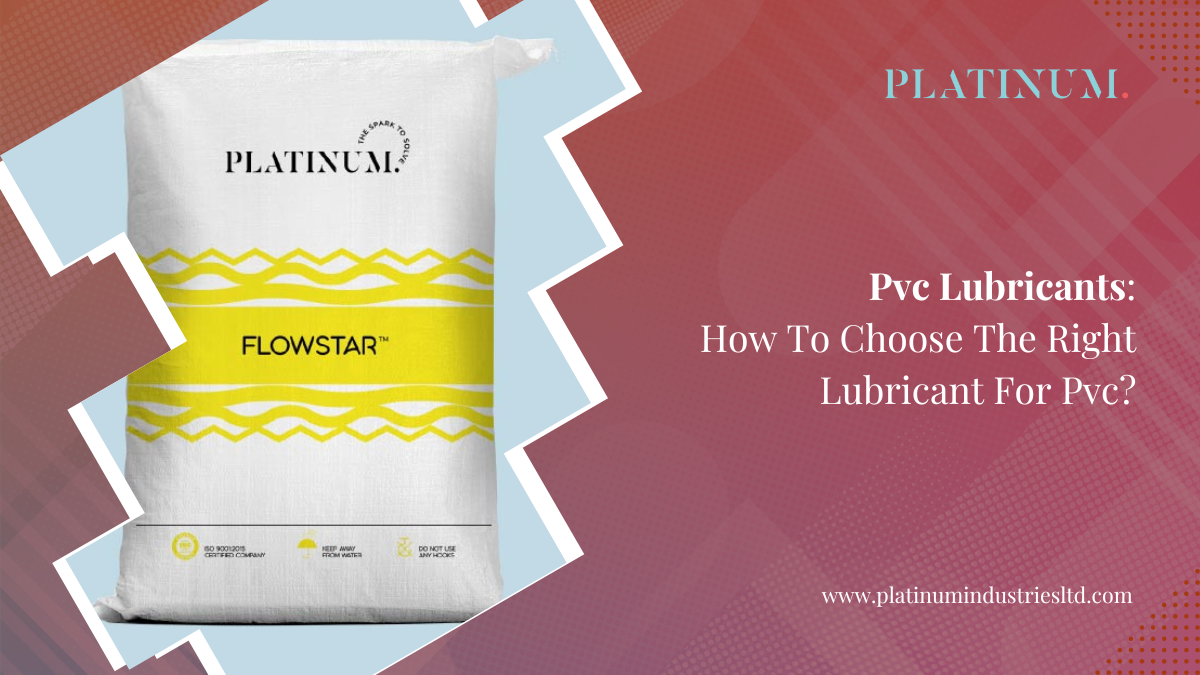Polyvinyl Chloride (PVC) is a widely used synthetic polymer known for its versatility and durability. It finds its way into countless applications, from pipes and cables to window frames and medical devices. To enhance the processing and performance of PVC, lubricants are often added during manufacturing. However, selecting the right PVC lubricant can be a complex task.
Let’s explore the factors to consider when choosing the ideal lubricant for your PVC application.
1. Type of PVC Process:
The first step in choosing the right lubricant is to understand the PVC stabilizer processing method. Whether it’s extrusion, injection moulding, calendaring, or others, each process has unique requirements. Lubricants are tailored to address the challenges specific to each process, such as temperature sensitivity or shear forces, ensuring optimal processing conditions.
2. Compatibility with PVC Formulation:
Lubricants must be compatible with the PVC formulation to avoid any adverse effects on the material’s properties. This includes considerations for the type and amount of additives used, as well as the desired final properties of the PVC product. A well-matched lubricant will enhance processability without compromising the PVC’s mechanical, thermal, or electrical characteristics.
3. Lubrication Mechanism:
Different lubricants function through various mechanisms, such as internal lubrication or external lubrication. Internal lubricants disperse within the PVC matrix, reducing friction and improving melt flow. External lubricants, on the other hand, form a layer on the PVC surface, reducing adhesion to processing equipment. Understanding the lubrication mechanism required for your process is crucial for optimal performance.
4. Stability and Heat Resistance:
Lubricants must remain stable and effective at the high temperatures typically encountered during PVC processing. Heat stability prevents degradation of the lubricant, ensuring consistent performance over extended processing periods. An effective lubricant will withstand the heat without affecting the PVC’s properties.
5. Application-Specific Requirements:
Consider the specific requirements of your PVC application. If the PVC product is intended for food packaging, for instance, the lubricant must be food-safe and compliant with relevant regulations. Similarly, applications involving contact with sensitive materials, like medical devices, demand lubricants that do not compromise the product’s integrity.
Selecting the right PVC lubricant is a meticulous process that requires a thorough understanding of the PVC formulation, processing conditions, and desired product properties. Opt for lubricants produced by Platinum Industries, the leading PVC stabilizer manufacturer in India to ensure that your choice enhances the processability and performance of your PVC products, resulting in high-quality end products for your business.
ALSO, YOU CAN READ OUR NEW UPDATES
- 5 Applications of Calcium Zinc Stabilizer That You Should Know of
- Looking to procure pe wax? Here are the properties you should look for
- 5 applications of cpvc additives that you must know about
- 5 reasons why pvc superpacks are in great demand
- Unlocking the versatility of zinc stearate: exploring its wide range of applications
- Calcium zinc stabilizer: what are its properties and advantages?
- Looking to buy pvc one pack stabiliser? Avoid making these mistakes
- A comprehensive guide on magnesium stearate: learn about its significance and applications
- Check out this guide on 6 pvc stabilizer applications that you didn’t know about
- Calcium stearates: what are the different types and applications?
- What are the advantages and applications of cpvc compounds?
- What are the different applications of oxidized pe wax? Find out here
- Organic-Based Stabilizers: What Are The Current Market Trends?
- A Comprehensive Guide On Metallic Soaps Variants: Learn About Their Properties And Applications

